As consumers, we're increasingly aware of the impact our choices have on the environment. When it comes to packaging, there's often a choice between recyclable or reusable containers. In this post, we'll explore the pros and cons of each, so you can make an informed decision as you continue your waste reduction journey.
Recyclable Containers
Recyclable containers are designed to be recycled after use, with the aim of reducing waste and conserving resources. While this is a noble goal, there are some downsides to relying solely on recyclable containers. Firstly, the recycling process itself can be energy-intensive, requiring resources like water and electricity to transform the material into a new product. Additionally, not all materials are equally recyclable, and some materials like plastics can only be recycled a certain number of times before they become unusable and end up in landfill.
Pros:
Reduces waste: By using recyclable containers, we can reduce the amount of waste sent to landfills and promote a more sustainable lifestyle.
Conserves resources: Recyclable containers can be made from a variety of materials, including glass, paper, metal, and plastic. By recycling these materials, we can conserve natural resources and reduce the need for new materials.
Supports a circular economy: Recycling can help create a closed loop where materials are reused, reducing the need for new resources.
Cons:
Energy-intensive recycling process: Recycling can be a complex process that requires significant amounts of energy, water, and other resources. This can contribute to greenhouse gas emissions and other environmental impacts.
Limited reuse potential: Not all materials can be recycled, and some materials like plastics can only be recycled a certain number of times before they become unusable and end up in landfill.
Contamination: If recyclable materials are not properly cleaned and sorted, they can contaminate other materials in the recycling stream, making them unusable and contributing to waste.
Reusable Containers
Reusable containers, on the other hand, are designed to be used multiple times, reducing the need for single-use packaging. This has a number of benefits, including reducing waste, conserving resources, and saving money in the long run. Additionally, reusable containers can be made from a variety of materials, including glass, stainless steel, and durable plastics that can withstand multiple uses.
Of course, there are some downsides to using reusable containers as well. Firstly, they can be more expensive up front than recyclable options. Additionally, they require regular cleaning and maintenance to ensure they remain safe and hygienic for multiple uses.
Pros:
Reduces waste: Reusable containers are designed to be used multiple times, reducing the need for single-use packaging and contributing to a more sustainable lifestyle.
Conserves resources: By reusing materials, we can conserve natural resources and reduce the need for new materials.
Supports a circular economy: Reusable containers can promote a closed loop where materials are used and reused, reducing waste and conserving resources.
Can save money in the long run: While reusable containers may require more up-front investment than single-use options, they can save money in the long run by reducing the need for repeated purchases.
Cons:
More expensive up front: Reusable containers can be more expensive up front than single-use options, which can be a barrier for some consumers.
Requires cleaning and maintenance: Reusable containers require regular cleaning and maintenance to ensure they remain safe and hygienic for multiple uses.
Can be bulky and heavy: Depending on the material and design, reusable containers can be bulky and heavy, making them less convenient to transport.
What about compostables?
No. Don't do it. (We go into why here) Most compostable containers are made with PLA which is terrible for the environment. Most Compostables are a marketing ploy for companies to make a lot of money by enabling our throw away mentality, and having us feel good about it. Reuse or recycling are both head and shoulders above compostables.
Which should you choose?
We recommend that, wherever possible, you use reusable containers. The up front cost is more than balanced by repeated reuse and energy conservation by avoiding recycling after use. Many reusable containers can, in fact, be recycled after many user, making them clearly the best of both worlds.



